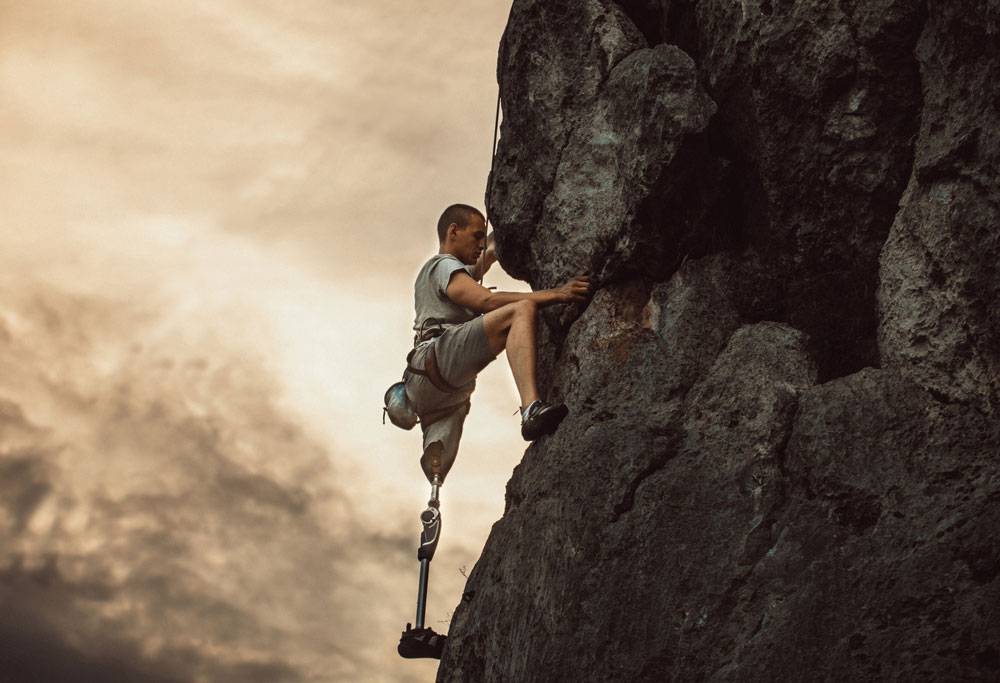 By Erick Janisse, CPed
By Erick Janisse, CPed
As we pass the midpoint of 2021, our great country is slowly but surely reopening and, hopefully, returning to normal (not the overused-to-the-point-of-being-nonsensical “new normal” that we heard about ad nauseum, but the real “normal” that we all remember and long for).
Looking back, some wonderful changes and advancements came out of a year of seemingly non-stop challenges and roadblocks brought on by the COVID-19 pandemic. One example is the spotlight the pandemic shone on the sometimes-marginalized senior population. As a country, we came together to do the best we could to look out for, help, and protect our elderly family members, patients, friends, and neighbors. We changed the way we do things to ensure that those most at risk were shielded as best as humanely possible from the dangers of COVID-19 – whether it was changing the way we do business and having only 1 patient in the office at a time on the work side, or wearing a mask and respecting seniors-only shopping hours at the grocery store in our personal lives. We checked in with parents, grandparents, and elderly neighbors much more frequently. The people you love – especially the most vulnerable – seem that much more precious in an environment fraught with such fear, anxiety, and uncertainty. It was difficult not to be able to visit loved ones in hospitals or nursing homes, but we did the best we could because we knew it would keep them safe. Who would have guessed so many octogenarians would become proficient with iPads and Zoom meetings?
We also realized how adaptable the orthotics, prosthetics, and pedorthics (OP&P) community can be when it came to the delivery of education in 2020. While some meetings were cancelled or postponed, many went virtual. No, it’s not the same, but there are some great benefits. Some meetings allowed you to view sessions at your convenience – complete with pause and rewind features. You could even re-watch presentations later if you like. Another obvious plus is that there were no travel expenses or time away from the family. We are also seeing some exciting advancements in virtual exhibit halls. This is a component that will need to be as cutting edge as possible if our professional organizations hope to grow their virtual conferences and symposia and see them thrive. Sponsors, vendors, organizers, and attendees all yearn for real, actual interaction – and we’re improving on that with every meeting.
 As a corporate trainer, I frequently teach Certified Fitter of Therapeutic Shoes (CFts) classes. At the onset of the lockdown, our Education Department worked together to develop and launch a multimedia, fully online CFts pre-certification course. While it is labor intensive to facilitate it this way, we’re proud of just how incredibly interactive it is. Over the past 18 months, I have helped (literally) hundreds of people set up and use Microsoft Teams for the first time – and most got a kick out of it. That being said, I am very glad to be travelling again and teaching classes in person. But virtual education is here to stay, and I firmly believe the 2 methods of delivery can not only coexist but also complement and augment each other.
As a corporate trainer, I frequently teach Certified Fitter of Therapeutic Shoes (CFts) classes. At the onset of the lockdown, our Education Department worked together to develop and launch a multimedia, fully online CFts pre-certification course. While it is labor intensive to facilitate it this way, we’re proud of just how incredibly interactive it is. Over the past 18 months, I have helped (literally) hundreds of people set up and use Microsoft Teams for the first time – and most got a kick out of it. That being said, I am very glad to be travelling again and teaching classes in person. But virtual education is here to stay, and I firmly believe the 2 methods of delivery can not only coexist but also complement and augment each other.
I, for one, was happy to see that Medicare did not relax the in-person requirement for the evaluation and delivery of OP&P devices. It is entirely impractical to presume that OP&P devices should – or even could – be measured for and fit virtually. Any responsible practitioner recognizes the inherent risk involved in mailing a brace or pair of diabetic shoes to a patient and keeping fingers crossed that everything fits. Beyond that, toward the end of 2020, and certainly in 2021, many (not all, of course) of our patients – desperate for human interaction and a return to normalcy – were more than happy to have in-person visits, face-to-face conversations, and something productive to do. Yes, OP&P clinicians are indeed essential.
Moving forward, I hope that compulsive handwashing never goes out of style. I’m perfectly fine with fist bumps. And I’m all about this newfound respect for personal space. But most importantly, I believe that we in the OP&P community have always been exceptionally adaptable, always looking for ways to do things better. As we exit this pandemic, I trust we can and will build upon the lessons we learned and leverage the efficiencies we developed while working under COVID-19 restrictions to keep improving our patient care models and making life just a little safer for our most at-risk, compromised, and/or elderly patients.
Erick Janisse, CO, CPed, a certified orthotist and pedorthist, is a corporate trainer at DJO Global in St. Louis, Missouri.









